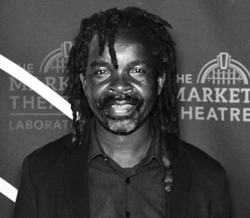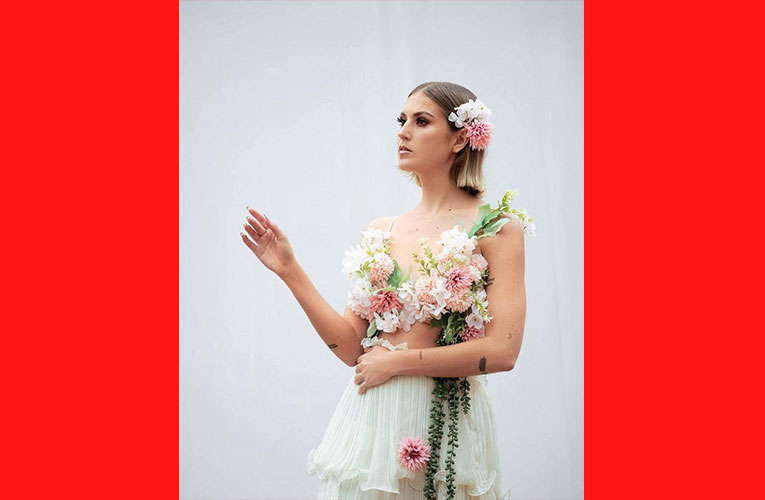Zimbabwean born Afro pop sensation Gemma’s musical expression aims at closing the gap between white and black
A mainly Afro pop artist, the versatile vocalist has also worked with Zim dancehall artists.
By Edward Tsumele

New Afro pop sensation Gemma whose listening session in Bryaston, Johannesburg, I unfortunately missed recently is not only versatile musically but linguistically and culturally as well. I was invited to her listening session for her new music project on her recent trip to South Africa promoting her new song Kwale and a documentary about her travels around the African continent for two years, but due to other commitments could not make it. Those travels were to get inspiration for her music that she and her producer worked on as they travelled and lived in a Land Rover.
However I had an opportunity to speak to this Zimbabwean music sensation via Zoom, and I got to learn that not only is she able to work in a space of music that his predominantly a play ground of Zimbabwean young musicians, such as Afro pop and the popular genre of Zim dance hall, but she also sings in the native Zimbabwean language of Shona. Of course her ability to sing in Shona, would not be something unexpected born in a country in which that language is predominantly spoken by the majority there. However in her case, that is growing white, it is not as straight forward as that. It is a bit complicated as many white people fro some reason, often struggle to speak the main languages of countries they call home in Africa.
Gemma however told me that as she learned at various schools in Harare mixing with other children who spoke the language, not only did she learn the language, but also became part of the black youth’s cultural expression, and in her case through music.
“I was born in a musical family, with my grandmother and mother being pianists. And also at school I have always taken music as an extra curricula activity from primary right up to high school,” she said.
The singer also got enmeshed in the youth culture dominating urban Harare, such as expressing themselves through music genres such as Afrop pop and dance hall, a genre that the youth in that country have perfected, having borrowed the original Sound Jamaican roots. But they have done so well with the improvisation of dance to the extnt that today, Zimbabwe stands out in South African as where good dance is located.
Gemma became a contributor to that perfection of raga to what is today distinctly a Zimbabwean sound. In other words, the youth of Zimbabwe have beautifully perfected the Jamaican genre, appropriating it.
Gemma played her bit in that process as she was featured in some of the Zimbabwean dance hall exponents’ musical projects, such as the popular dancehall artist Winky D, among others..
However Gemma is aware that issues of cultural appropriation especially in race conscious post colonial Africa are a sensitive issue.
“I am aware of the privilege I have as a white person getting into a culture that is mainly black youth’s cultural expression. However what is important is that one must never get into the culture in order to get something out of it without putting in something into the culture in return. And so one must be honest in how they play in such a space. The point is as I grew up, it became part of a culture that I was part of and was attracted to musically as a form of youth cultural expression,” she said.
Asked about the reaction of white friends to her expressing herself musically within the frame of black youth culture, Gemma had this to say: “I actually do not have many white friends, but my music project is attracting a lot of interest cross culturally. The point is that we need to have a genuine conversation (black and white) including learning each other’s languages so that we can come closer. The fact that white people are unable to articulate themselves in a predominant language of the country, is something we need to have a serious conversation about.”
And indeed her musical exploits are gaining a lot of traction currently among music loving Zimbabweans, and this could because she took time to compose and produce her music, and travelling through Africa, visiting 10 countries must have played a crucial part in that journey of inspiration. The fruits of that journey are her newly released song Kwale, inspired by her experience while travelling through Kenya.
About her new song, Gemma says, “Kwale represents the idea of longing for a person, a place, a time… for me, I found that longing fulfilled in Kwale, a region with a quiet beach on the east coast of Kenya. I was travelling through East Africa at the time, and every time I longed for the feeling of familiarity, I would go back to Kwale. It would fill me with a sense of comfort”
The accompanying video is directed by filmmaker Marc Neilson, who weaves more Zimbabwean collaboration across artistic communities. Shot in the UK and Zimbabwe, it features the work of Tatenda Chabarwa, whose strong rhythmical choreography provides the base for which the themes of longing bring Gemma’s vision to life.
This new music comes as Gemma is still trending in her home country for her contribution to the Matenga Na Gudo Riddim by Zimdancehall connoisseurs Levels and Fantan. A household name in Zimbabwe, together with Winky D, she holds the record for the fastest YouTube views in the country for their single MuGarden.
In 2020, Gemmareleased her EP Pamwe, a body of work written on a journey of over 500 days, through 10 countries across the African continent, where Gemma lived, wrote and recorded in a Land Rover Defender. From the East African coastline to the Namibian desert, the Bwindi impenetrable forest to the Quirimba Archipelago. The forthcoming project – A Girl From Harare is the next installment – a collection of stories Gemma picked along the way, as well as a reflection of the lessons she carried with her from back home. These are told in a form of a documentary.
The 10 countries that Gemma has travelled to and have culturally enriched her life in general and her musical journey in particular are South Africa, Mozambique
Tanzania, Kenya, Uganda, Malawi, Zambia, Zimbabwe, Botswana and Namibia. The journey was close to two years, and she told CITYLIFE/ARTS that it was only stopped by the outbreak of Covid-19.
“That journey was quite interesting as I learned a lot about Africa’s different cultures. I came to realize that Africa is a diverse continent and the region’s cultures are different. The part I enjoyed most as I travelled is the part that is inhabited by the Bantu, and I think because the languages spoken there have some elements of Shona, and the cultures generally are the same as in back home,” she told CITYLIFE/ARTS.










